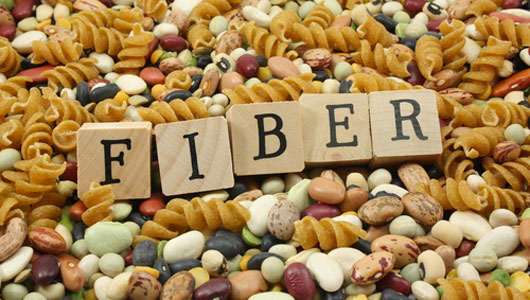Fiber – The Most-Overlooked Nutrient Of A Successful Diet

When the term ‘dieting’ was mentioned, most people either think about reducing the amount of calories, or choose to starve themselves. However, few thought about incorporating fiber into their diet. If it sounds unfamiliar to you, fiber is a type of complex carbohydrate that is indigestible by human digestive tract.
Although it is non-essential, it does wonder to your body by assisting in digestion and helps your body to flush out toxins and wastes. Apart from that, it also helps in promoting satiety, slowing down the rate of gastric emptying, reducing LDL cholesterol, and altering glycemic response towards a certain food.
Soluble & Insoluble Fibers
When you go through the nutritional label, you will often see fiber being divided into soluble and insoluble in the carbohydrate section.
The soluble fiber is what fiber is famous for, & it’s also the culprit for passing nasty gas. When you consume vegetables or legumes in large quantity, you’ll realize that it fills up your stomach faster than any other foods, and your abdomen seems to swell.
The bulk that fiber contributes will produce a sense of fullness that will last for a prolonged period. So, if you are on a cutting diet and still feel hungry after a meal, consider adding some soluble fiber into your meals.
Also, soluble fibers absorb water and form gels to delay gastric emptying. By doing so, fiber reduces the rate of lipid absorption, thereby reducing the amount of cholesterol in our body. It also prepares the nutrients to the small intestine for absorption.
The consumption of soluble fiber can be a double edged sword. On one hand, the gel formed in your stomach can entrap other macronutrients, which prevents the enzymes from reaching the entrapped nutrients. On the other hand, the gel can also improve glucose tolerance and reduce LDL cholesterol. As your glucose tolerance improved, blood glucose levels will be reduced following meals packed with soluble fiber, and it will also reduce insulin secretion.
Unlike its counterpart, insoluble fiber doesn’t dissolve in water, and it helps to add bulk to the stool while helping food to pass at a faster rate through the intestines, promoting gut health & preventing constipation.
The increase in bulk also improves the water-holding capacity of the excrements. The combination of larger size and higher moisture content leads to a reduction in transit time within the colon.
It’s recommended not to take insoluble fiber alone, as too much of it can cause violent and prolonged contraction of the colon, causing gut complication such as diarrhea or irritable bowel syndrome.
How Much Fiber Should I Have?
According to Harvard School of Public Health, it’s recommended to get at least 20 grams of fiber a day from various sources to balance out your intake. Great food sources include oatmeal, whole grain breads, legumes, green-coloured veggies, blueberries, celery, oranges, prunes, and tomatoes.
AS fiber intake increases, it’s also recommended to drink more water, as fiber absorbs fluid while it travels through the intestine. Failure to do so may result in bloating or gas.

